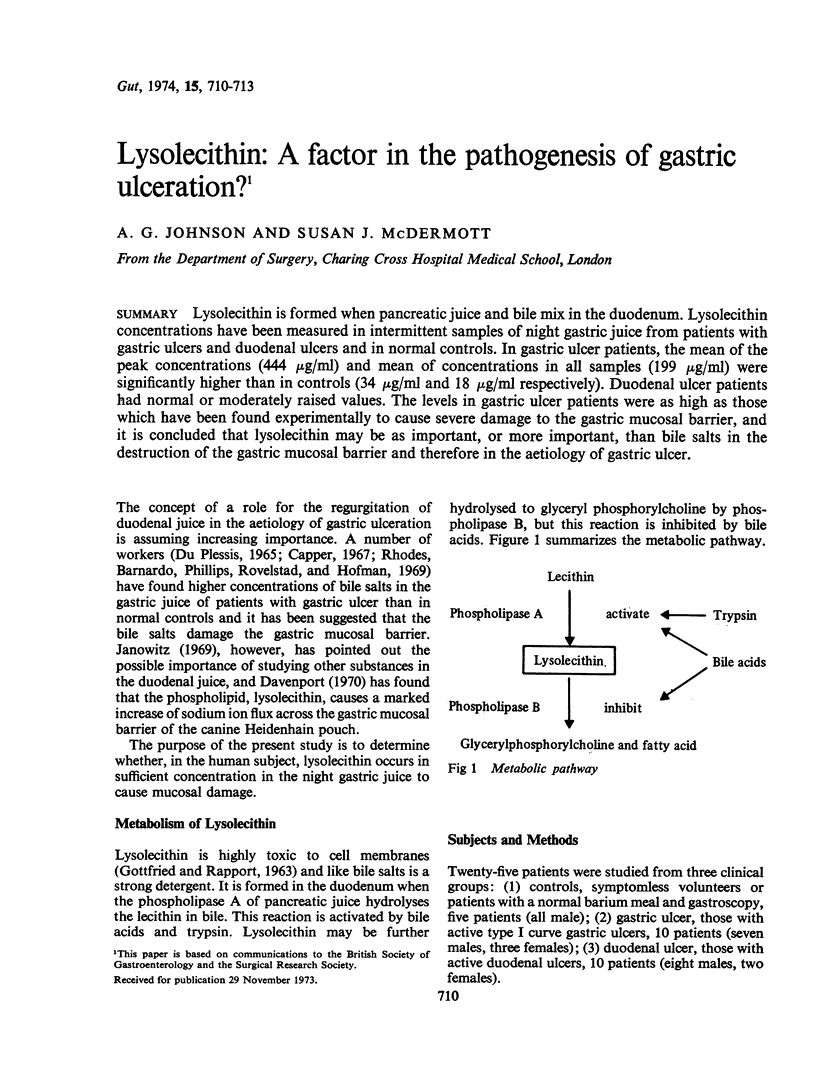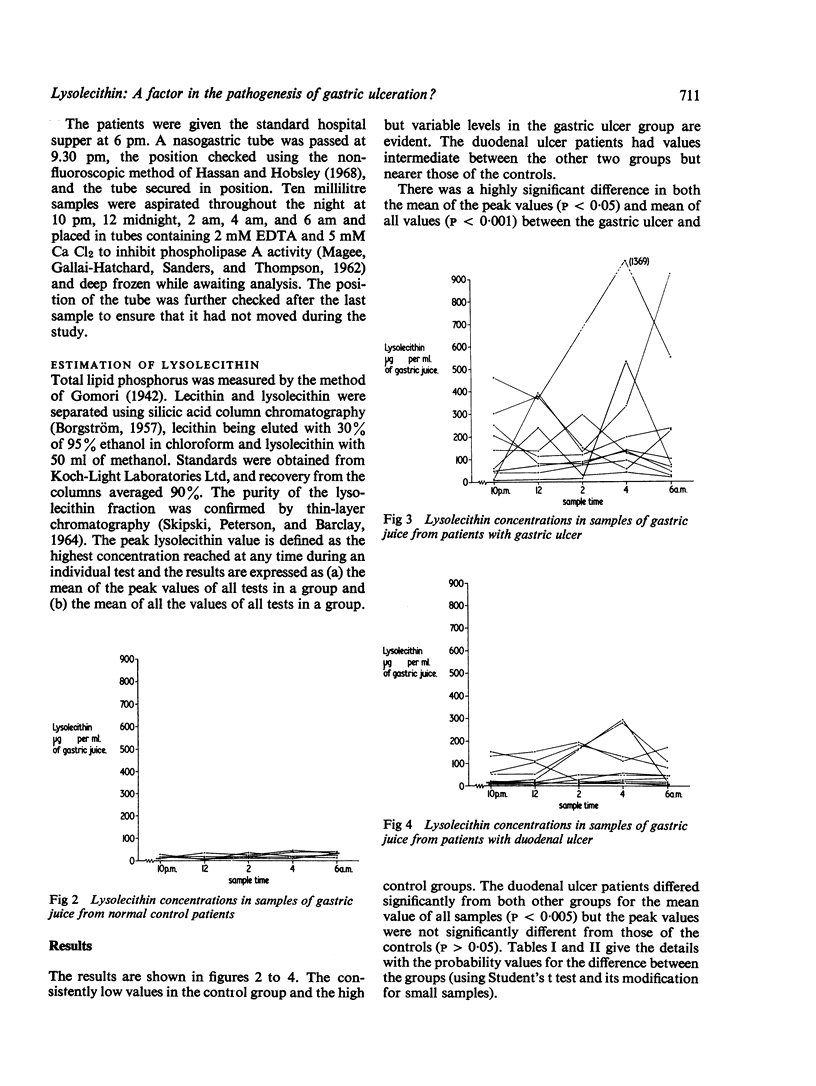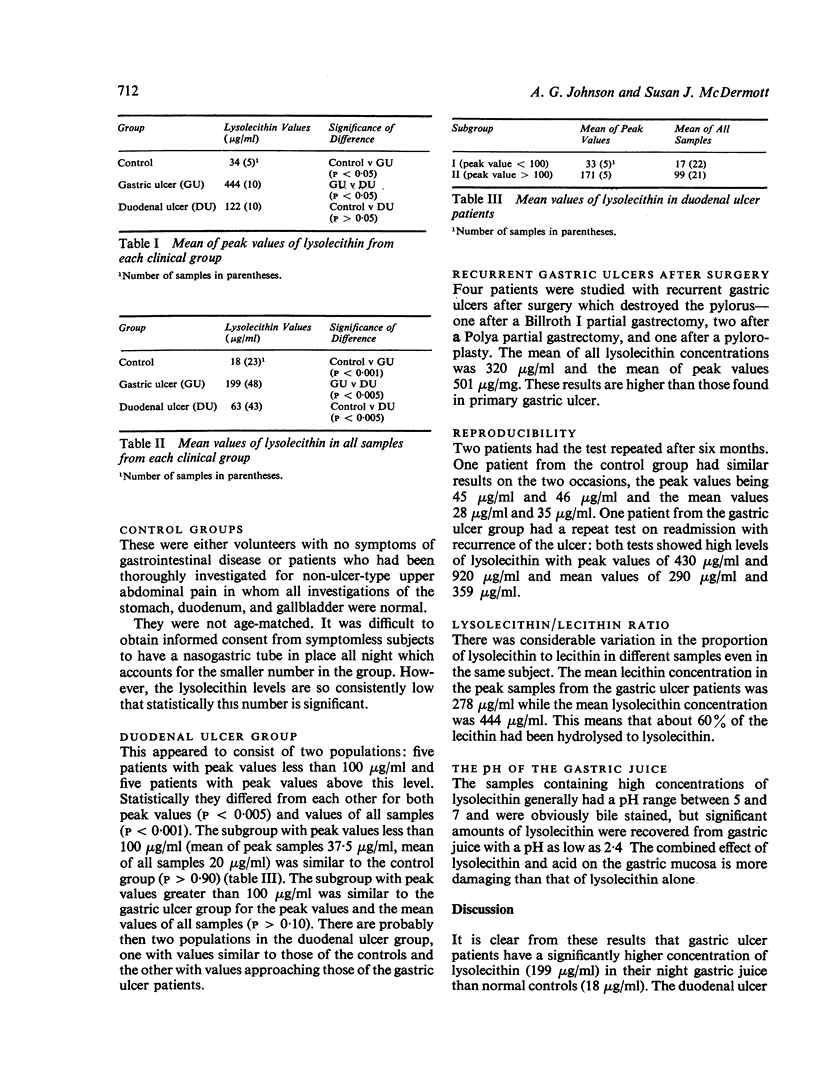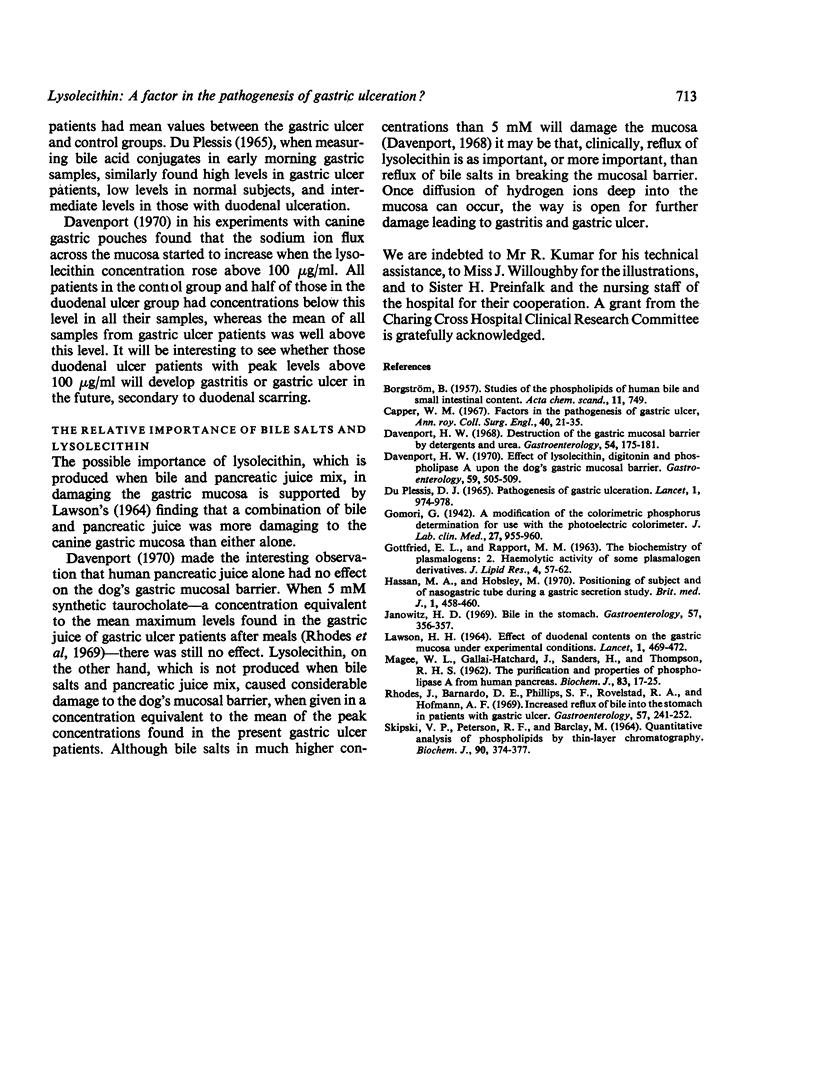Abstract
Lysolecithin is formed when pancreatic juice and bile mix in the duodenum. Lysolecithin concentrations have been measured in intermittent samples of night gastric juice from patients with gastric ulcers and duodenal ulcers and in normal controls. In gastric ulcer patients, the mean of the peak concentrations (444 μg/ml) and mean of concentrations in all samples (199 μg/ml) were significantly higher than in controls (34 μg/ml and 18 μg/ml respectively). Duodenal ulcer patients had normal or moderately raised values. The levels in gastric ulcer patients were as high as those which have been found experimentally to cause severe damage to the gastric mucosal barrier, and it is concluded that lysolecithin may be as important, or more important, than bile salts in the destruction of the gastric mucosal barrier and therefore in the aetiology of gastric ulcer.
Full text
PDF



Selected References
These references are in PubMed. This may not be the complete list of references from this article.
- Capper W. M. Factors in the pathogenesis of gastric ulcer. Hunterian lecture delivered at the Royal College of Surgeons of England on 18th January 1966. Ann R Coll Surg Engl. 1967 Jan;40(1):21–35. [PMC free article] [PubMed] [Google Scholar]
- DUPLESSIS D. J. PATHOGENESIS OF GASTRIC ULCERATION. Lancet. 1965 May 8;1(7393):974–978. doi: 10.1016/s0140-6736(65)91214-6. [DOI] [PubMed] [Google Scholar]
- Davenport H. W. Destruction of the gastric mucosal barrier by detergents and urea. Gastroenterology. 1968 Feb;54(2):175–181. [PubMed] [Google Scholar]
- Davenport H. W. Effect of lysolecithin, digitonin, and phospholipase A upon the dog's gastric mucosal barrier. Gastroenterology. 1970 Oct;59(4):505–509. [PubMed] [Google Scholar]
- GOTTFRIED E. L., RAPPORT M. M. THE BIOCHEMISTRY OF PLASMALOGENS. II. HEMOLYTIC ACTIVITY OF SOME PLASMALOGEN DERIVATIVES. J Lipid Res. 1963 Jan;4:57–62. [PubMed] [Google Scholar]
- Hassan M. A., Hobsley M. Positioning of subject and of nasogastric tube during a gastric secretion study. Br Med J. 1970 Feb 21;1(5694):458–460. doi: 10.1136/bmj.1.5694.458. [DOI] [PMC free article] [PubMed] [Google Scholar]
- Janowitz H. D. Bile in the stomach. Gastroenterology. 1969 Sep;57(3):356–357. [PubMed] [Google Scholar]
- LAWSON H. H. EFFECT OF DUODENAL CONTENTS ON THE GASTRIC MUCOSA UNDER EXPERIMENTAL CONDITIONS. Lancet. 1964 Feb 29;1(7331):469–472. doi: 10.1016/s0140-6736(64)90800-1. [DOI] [PubMed] [Google Scholar]
- MAGEE W. L., GALLAI-HATCHARD J., SANDERS H., THOMPSON R. H. The purification and properties of phospholipase A from human pancreas. Biochem J. 1962 Apr;83:17–25. doi: 10.1042/bj0830017. [DOI] [PMC free article] [PubMed] [Google Scholar]
- Rhodes J., Barnardo D. E., Phillips S. F., Rovelstad R. A., Hofmann A. F. Increased reflux of bile into the stomach in patients with gastric ulcer. Gastroenterology. 1969 Sep;57(3):241–252. [PubMed] [Google Scholar]
- Skipski V. P., Peterson R. F., Barclay M. Quantitative analysis of phospholipids by thin-layer chromatography. Biochem J. 1964 Feb;90(2):374–378. doi: 10.1042/bj0900374. [DOI] [PMC free article] [PubMed] [Google Scholar]


